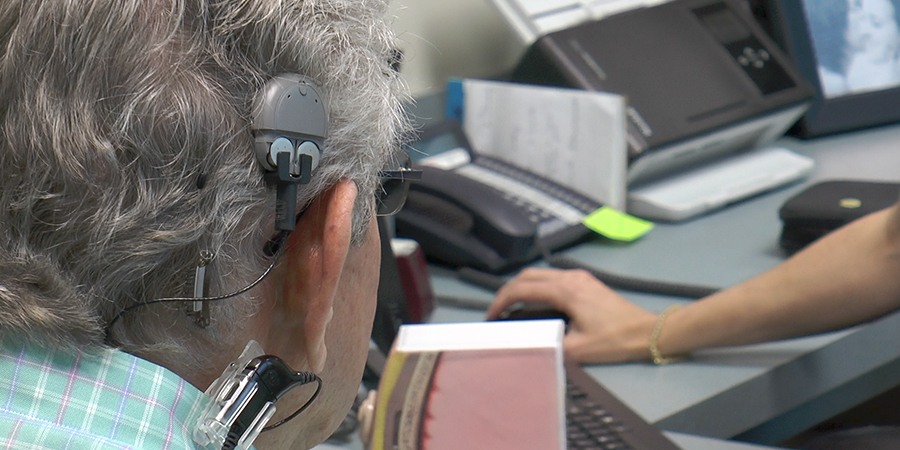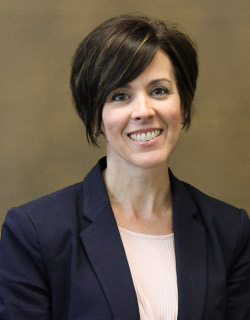Tech Making Cochlear Care Better for Patients
March 13, 2018
With 36 million Americans experiencing hearing loss, GBMC continues to build a model Cochlear Implant Center, expand the number of patients served and increase its visibility within the community. We pride ourselves on the utilization of best practices and coding for optimal success. And our recent leadership efforts in a new clinical model study to help standardize cochlear implant care globally are no exception.
As one of eight centers selected in the United States for this study – and the only community-based hospital – GBMC is studying new and existing patients to reduce the number of visits needed for optimal performance while maintaining or improving outcomes in a faster time frame.
Using computer-assisted software, Regina Presley, Au.D., FAAA, CCC-A, Senior Cochlear Implant Audiologist and her team, can now directly connect patients through the office computer for assessments. The new system provides better sound quality and identifies additional assessments that can be provided in the moment. It allows Dr. Presley to make changes to programming and immediately show patients the benefits to changes.

Currently, programming changes made to a patient’s cochlear implant system are made manually, and often individually, to accurately determine their effects on patient performance. With the use of artificial intelligence, staff is able to make multiple changes simultaneously with the confidence patients are receiving optimal care. With immediate assessment, the team is able to verify this performance improvement and counsel patients accordingly.
Not only does this system increase efficiency, enhance patient care and reduce the risk of errors, it also standardizes and optimizes care around the globe. Before the implementation of this study, there was much variability in service provisions among the different cochlear implant centers nationally. This new system will streamline those procedures and ensure continuity of care across the globe.
But GBMC's vision is patient-centered because of the expert care we deliver and because of the personal touch our staff provides. Less time in the office will mean less face-to-face with the clinicians patients have grown to love. But Dr. Presley assures this couldn't be further from the truth.
"It's important to us to maintain those relationships and direct patient care that is meaningful," Dr. Presley said. "GBMC is working diligently to ensure, as we're moving forward and addressing changes in healthcare, we are doing it mindfully and allowing patients to be active participants.
"When we educated patients on the changes in healthcare, they understood and they wanted to help and be a part of the change. By making them active participants in the change, we empowered them.
"All of this is being done with patients fully invested in not only their own personal performance and improvement, but that of the study. It's amazing how important they value moving the industry to the next level."
Dr. Presley currently has nine active participants – some have finished the study, two of whom have already volunteered to return for Phase 2. GBMC's appointment time was already half the national average, and this study has allowed us to reduce the need for patients to wait to obtain optimal service. Patient travel times are also reduced, and they spend less money on co-pays and parking, which ultimately gives them time to enjoy the new quality of life they receive with their cochlear implant.
Participation in cutting edge research will continue to position GBMC as an industry leader in this area. Brian Kaplan, M.D., Department of Otolaryngology Chairman, will continue to represent GBMC throughout Europe, highlighting our model of efficiency and Dr. Presley will continue advanced training and presentation of our clinic success in Antwerp in June 2018.





